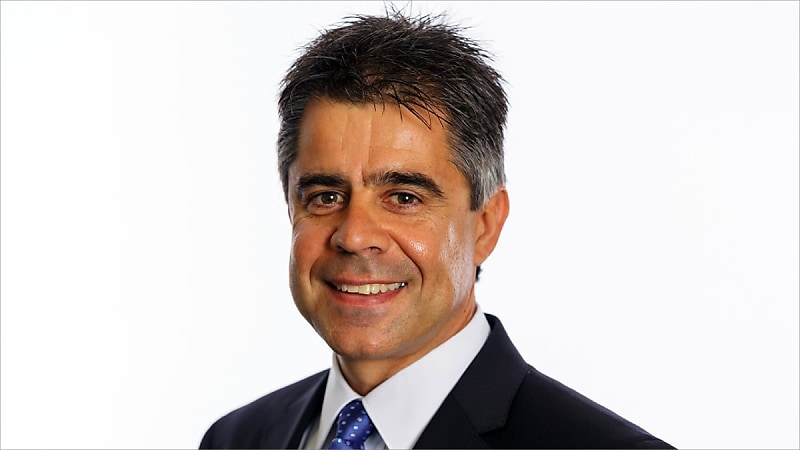SMSFA says government’s claim of equity for all fund sizes not evident in budget
The government’s assertion that it wants to treat all super funds the same doesn’t ring true according to the SMSFA following announcements in Tuesday night’s budget.
SMSF Association CEO Peter Burgess said while the government made changes to the NALI proposals to level the playing field between big and small funds, including SMSFs, its lack of detail regarding the controversial $3 million super tax suggests that the bigger APRA-regulated funds are still the main priority of the government.
In a clarifying email yesterday to Mr Burgess, Treasury said it was sticking to the same formula it had proposed in its consultation paper.
“We don’t know if the government has decided to exclude certain things as the industry was calling for and there wasn’t enough detail in the budget papers to see that but it has confirmed it will use TSB to calculate earnings for the new tax,” Mr Burgess said.
“It is an artificial calculation of earnings derived from movement in member’s TSB in that income year and we don’t agree with that approach – it is neither simple or fair and by definition it will include unrealised gains.
“Our preferred approach is we don’t support this new tax. We believe there are already enough caps and thresholds to address this issue over time and if we have to have it then earnings should be based on actual earnings of those funds that can report it.
“We understand the government’s desire to approach all funds the same, but they seem to approach them differently with the changes to the NALI rules.”
In light of the budget announcements on the $3 million super tax, the SMSFA is urging the government to re-open industry consultation.
“Further consultation about this new tax is imperative so that the full impact on the small business and farming communities and others can be properly considered,” Mr Burgess said.
“The previous consultation phase was only 18 days, including Easter, and that was simply insufficient time for the industry to fully identify all the issues. We understood the need to finalise things for the budget, but that should not come at the expense of rushing important legislation with unintended consequences.”
The new tax, which aims to ensure generous superannuation concessions are better targeted and sustainable, will bring the headline tax rate to 30 per cent, up from 15 per cent, for earnings corresponding to the proportion of an individual’s total superannuation balance that is greater than $3 million.
However, Mr Burgess said it is difficult to determine exactly who and what will be now included in the tax calculations.
“There has been speculation that the government has included defined benefit in that calculation but it is not entirely clear.”
“We would like to think there is still the possibility to consult on the way earnings will be calculated and we remain of the view that doing so on members’ TSB derives an artificial earnings figure that takes in unrealised gains.
“This is not a simple or fair way to calculate earnings.”
Mr Burgess said he was not surprised at the budget announcement around the $3 million super tax but said the industry was hoping for more clarity.
“It was a relatively quiet budget for SMSF but a disappointing one.”
“There was a small win for SMSF in NALI rules – a small change to the previously announced fix to that issue – but large funds had a much bigger win because they have been carved out of those provisions in full for general and specific expenses.
“The mischief these provisions were trying to address no longer needs to be addressed, in our view, and were addressed with ATO determinations and guidance so it remains a mystery to us why these 2019 amendments to NALI were needed.
“And it makes no sense to us why APRA funds would only be repealed from them and not SMSFs.
“If the government is concerned about the possibility of mischief in this area, then there are more practical and less destructive ways to do it. We presented an alternative approach and are disappointed it has fallen on deaf ears.”
Mr Burgess said if the government proceeds with the taxation of unrealised gains as proposed in their consultation paper released in late March, given many small business premises and farms are owned by SMSFs, this new tax could drive up their costs substantially at a time of unprecedented cost of living increases.
“Therefore, it’s important the full impact on taxpayers, including small business owners and primary producers, is fully explored.”
“Clearly, the new tax on high balances will impact SMSF more than others and particularly when you consider SMSFs hold real property like small businesses and farmers, and the inclusion of unrealised gains will have a bigger impact in this sector than anywhere else.
“This artificial calculation on earnings is not a fair approach to the sector. If the government says it wants to treat all funds the same, then why is it prepared to treat them differently when it comes to NALI.”
 I have to wonder with the lack of detail in the budget about the proposed 30% tax issue on superannuation balances over $3m and apparently nothing changing with the proposal so far, and no apparent appetite to change the Treasury calculations - is the government holding off as long as they can to minimise the time that those affected have to alter their affairs? It will not be a simple process to move some assets out of super to a more effective structure, where we will not be robbed blind.
I have to wonder with the lack of detail in the budget about the proposed 30% tax issue on superannuation balances over $3m and apparently nothing changing with the proposal so far, and no apparent appetite to change the Treasury calculations - is the government holding off as long as they can to minimise the time that those affected have to alter their affairs? It will not be a simple process to move some assets out of super to a more effective structure, where we will not be robbed blind.
I feel for those that are not going to be able to access their superannuation assets to move them if they are not able to trigger a release. I read somewhere that the constitution will not allow them an opportunity or window to do this?
The government gave us incentives to save, as the normal tendency is to enjoy funds now, rather than later, but now that we have done that, they want to literally raid those savings that we can't even touch!
A lot does not sit right with this proposal and my experience is that young, normal everyday people are talking about this and not putting any extra into superannuation anymore. There is just too much risk.
There is a lot in this proposal that does not sit right, besides which, it is discriminatory against a small group of people.0 I agree - there doesn't seem to be much push back about the proposed 30% tax, even though it will add to complexity with another tier of taxation, but the extended definition of "income" or "earnings" is a huge issue.0
I agree - there doesn't seem to be much push back about the proposed 30% tax, even though it will add to complexity with another tier of taxation, but the extended definition of "income" or "earnings" is a huge issue.0 A good call-out Peter. The NALI demarcation should be precedential to having a bifurcated approach to this new tax. The earnings surcharge cannot be "sector neutral". At one extreme are defined benefit interests and the other APRA funds. SMSFs are the target but the arrangement least suits the structure.
A good call-out Peter. The NALI demarcation should be precedential to having a bifurcated approach to this new tax. The earnings surcharge cannot be "sector neutral". At one extreme are defined benefit interests and the other APRA funds. SMSFs are the target but the arrangement least suits the structure.
My feedback is that the extra tax is not being resisted but the NEW tax on unrealised gains is impossible to justify. SMSFs are able to provide the information in order to calculate the member's share of the fund earnings in order to collect the tax and so should be able to. APRA funds can utilise the formula.
Simplicity is touted as the main issue here but it is a disguise for the actual intent and just keeps the industry "wars" going.1









